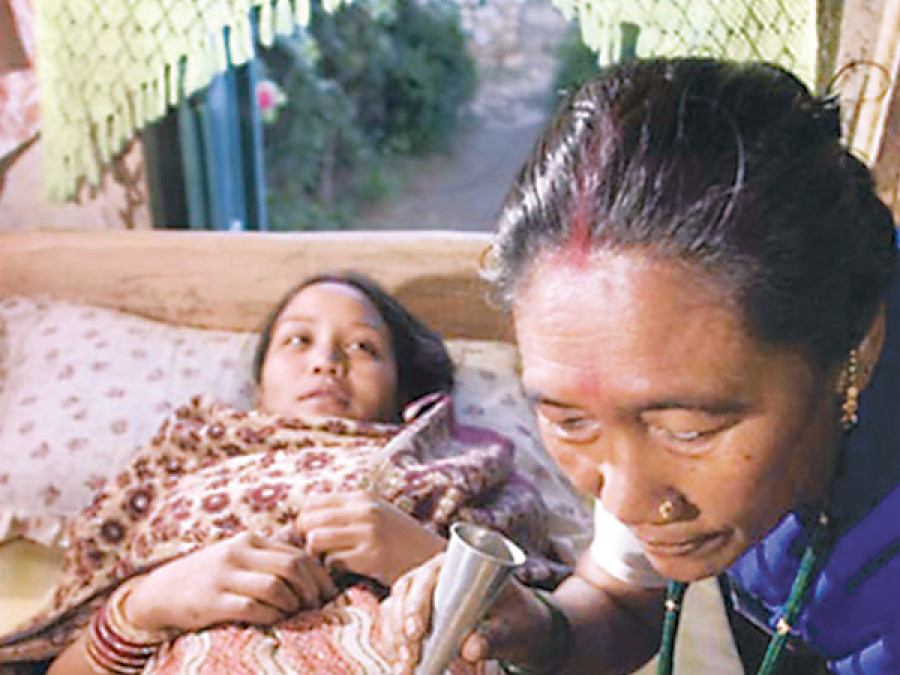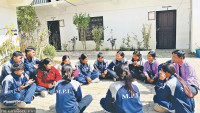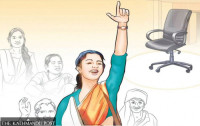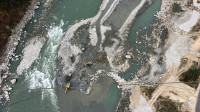National
Government bid to minimise uterine prolapse ‘ineffective’
Sabroon Nisha of Pokharbhindi in Rupandehi got married at the age of 12. She became mother at 15 and had five children when she was just 24.
Four years ago, Sabroon reached the free uterus check-up camp organised by the District Public Health Office (DPHO). She was provided free treatment there and later underwent a surgery at Butwal-based Lumbini Zonal Hospital. She is now health after 20 years of pain.
According to doctors, uterine prolapse is a result of physical strain and carelessness in food habits during pregnancy and after delivery, underage pregnancy and unsafe intercourse during pregnancy. A large number of rural women suffer from uterus prolapse but they tend to hide this problem due to fear of abuse and mistreatment from family members.
Loksari Kahar of Raipur has had similar fate. After her husband forcefully had sex with her just 12 days after childbirth, her uterus prolapsed seven years ago. Though she removed her uterus four years ago, her husband remarried as she could not give birth again. Mother of a daughter, Loksari said, “I lost my uterus due to my husband’s fault. Now, he tries to kick me away from the house.”
Doctors say uterine prolapse can be treated in the first and second stages by putting a ring but cannot be treated in the third stage. After prolapse, surgery is the only method to get rid of pain. However, as women cannot conceive after the surgery, many of them are divorced.
“Due to fear of losing one’s reputation and being mocked at by people, many women do not open up about their condition,” said Model United Development Council chief Gyanu Poudel who has been organising various camps and awareness programmes. DPHO chief Rishi Lamichhane said camps were organised in 18 health posts this year in coordination with local women’s group, health volunteers and local organisations.
Though the government provides free treatment for uterine prolapse, many women across the country are still unaware of such provision. Rita Devi of Nagardaha 9 in Parsa, who was facing the problem, said she went to the bordering town of Raxaul in India for the surgery. “I spent around Rs 15,000 for medication without taking into account travel expenses,” she told the Post. As women lack information, the authorities concerned are struggling to meet their target of providing treatment to 300 women within the current fiscal year in the district. As of now, only 22 operations have been carried out so far. Parsa DPHO chief Arun Mahato said they were unable to organise screening camps owing to the protests of Assistant Health Workers. Doctors, on the other hand, said such camps can be organised without such health personnel.
The Ministry of Health and Population provides Rs 12,000, Rs 13,000 and Rs 15,000 to hospitals in Tarai, hill, and mountain regions, respectively, for free surgery and allowances for food and travel for women suffering from uterine prolapse. According to Maya Shah, coordinator of the Uterine Prolapse Minimisation Programme, around 400 of the total 2,000 women who underwent check-up in the past five years were diagnosed with uterine prolapse in the district.
Meanwhile, doctor at BP Koirala Memorial Cancer Hospital said uterus cancer is the most diagnosed form of cancer. According to the hospital, in 2013 alone, 557 women were diagnosed with uterus cancer in the health facility.
(With inputs from our correspondents in Rupandehi, Parsa, Bara, Chitwan, Nawalparasi & Makwanpur)




 8.65°C Kathmandu
8.65°C Kathmandu













